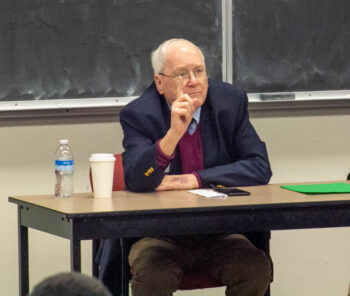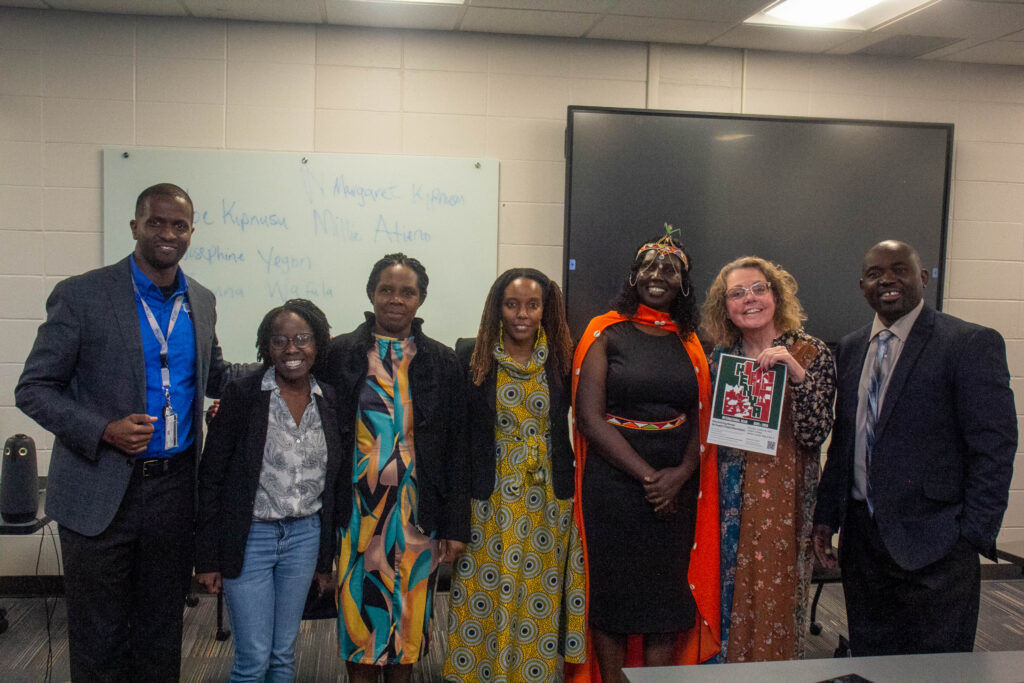DMACC students, faculty, and staff recently had the chance to hear from two very different but equally important and inspiring speakers. On Oct. 30, Former U.S. Ambassador to Cambodia, Kenneth Quinn, and a panel of Kenyan professionals who now call the U.S. and Iowa home.
Quinn served more than 30 years in the U.S. Foreign Service and shared emotional stories from his time in Vietnam and Cambodia during and after the Vietnam War. Speaking in Building 2, he talked about difficult moral choices that diplomats face in war zones, including moments when he had to use force or protect innocent civilians. Quinn said his guiding question throughout his career was, “To whom do I have an obligation?” and he lived by this through his actions and experiences.
Quinn also described his work with helping refugees and promoting peace through agriculture as president of the World Food Prize Foundation in Des Moines. Quinn reminded students that the effects of war tend to last for generations and said true leadership means acting with courage and compassion. His lessons and stories connected very closely with America’s Progressive Era and President Roosevelt’s New Deal initiative during the Great Depression.
A few buildings down, as part of DMACC’s International Year, students were able to meet with a panel of Kenyan visitors both in-person and online as they discussed life in Kenya, religion, and their experiences immigrating to the United States. They explained how Kenyans abroad send money back home each year to support families and to strengthen the economy. The panel also talked about Kenya’s growing diversity of religions, including Christianity, Islam, Hinduism, and newer faiths as well. They also touched on how colonialism and globalization shaped these traditions.
The panel shared excitement and challenges of moving to America for education and opportunity, from cultural differences to the emotional toll that living so far from family and home can have on you. They said Kenya is known for its sense of community and being together through everything, living in the U.S. often means having to adapt to a more individual lifestyle.
Both events and presentations gave students a global perspective that ties directly into U.S. history and important life lessons and stories from inspirational people. Quinn reflected on war and moral duty while the Kenyan speakers shared stories of faith and family with resistance. The message for both was clear: to understand the world, along with shared humanity, starts with listening to others’ stories and experiences.







Comments